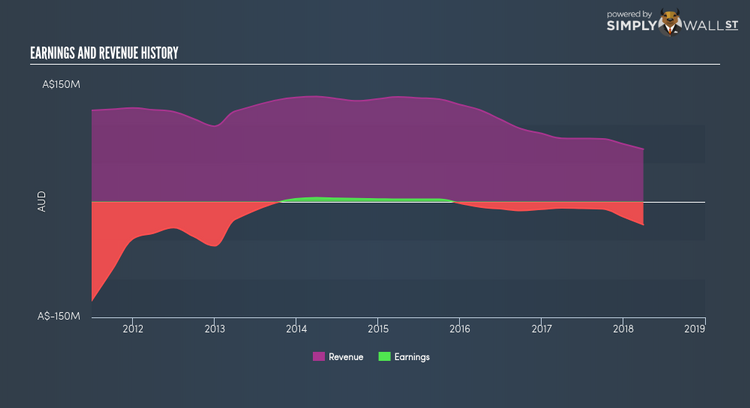Should You Have Neptune Marine Services Limited’s (ASX:NMS) In Your Portfolio?

For Neptune Marine Services Limited’s (ASX:NMS) shareholders, and also potential investors in the stock, understanding how the stock’s risk and return characteristics can impact your portfolio is important. The beta measures NMS’s exposure to the wider market risk, which reflects changes in economic and political factors. Not every stock is exposed to the same level of market risk, and the market as a whole represents a beta value of one. A stock with a beta greater than one is expected to exhibit higher volatility resulting from market-wide shocks compared to one with a beta below one.
Check out our latest analysis for Neptune Marine Services
An interpretation of NMS’s beta
Neptune Marine Services has a beta of 1.45, which means that the percentage change in its stock value will be higher than the entire market in times of booms and busts. A high level of beta means investors face higher risk associated with potential gains and losses driven by market movements. Based on this beta value, NMS will help diversify your portfolio, if it currently comprises of low-beta stocks. This will be beneficial for portfolio returns, in particular, when current market sentiment is positive.
How does NMS’s size and industry impact its risk?
NMS, with its market capitalisation of AU$39.02M, is a small-cap stock, which generally have higher beta than similar companies of larger size. Furthermore, the company operates in the energy services industry, which has been found to have high sensitivity to market-wide shocks. As a result, we should expect higher beta for small-cap stocks in a cyclical industry compared to larger stocks in a defensive industry. This supports our interpretation of NMS’s beta value discussed above. Fundamental factors can also drive the cyclicality of the stock, which we will take a look at next.
Can NMS’s asset-composition point to a higher beta?
An asset-heavy company tends to have a higher beta because the risk associated with running fixed assets during a downturn is highly expensive. I test NMS’s ratio of fixed assets to total assets in order to determine how high the risk is associated with this type of constraint. Given a fixed to total assets ratio of over 30%, NMS seems to be a company which invests a big chunk of its capital on assets that cannot be scaled down on short-notice. As a result, this aspect of NMS indicates a higher beta than a similar size company with a lower portion of fixed assets on their balance sheet. Similarly, NMS’s beta value conveys the same message.
What this means for you:
You may reap the gains of NMS’s returns in times of an economic boom. Though the business does have higher fixed cost than what is considered safe, during times of growth, consumer demand may be high enough to not warrant immediate concerns. However, during a downturn, a more defensive stock can cushion the impact of this risk. In order to fully understand whether NMS is a good investment for you, we also need to consider important company-specific fundamentals such as Neptune Marine Services’s financial health and performance track record. I urge you to complete your research by taking a look at the following:
Financial Health: Is NMS’s operations financially sustainable? Balance sheets can be hard to analyze, which is why we’ve done it for you. Check out our financial health checks here.
Past Track Record: Has NMS been consistently performing well irrespective of the ups and downs in the market? Go into more detail in the past performance analysis and take a look at the free visual representations of NMS’s historicals for more clarity.
Other High-Performing Stocks: Are there other stocks that provide better prospects with proven track records? Explore our free list of these great stocks here.
To help readers see pass the short term volatility of the financial market, we aim to bring you a long-term focused research analysis purely driven by fundamental data. Note that our analysis does not factor in the latest price sensitive company announcements.
The author is an independent contributor and at the time of publication had no position in the stocks mentioned.

 Yahoo Finance
Yahoo Finance 
